SUMMARY
This is AI generated summarization, which may have errors. For context, always refer to the full article.
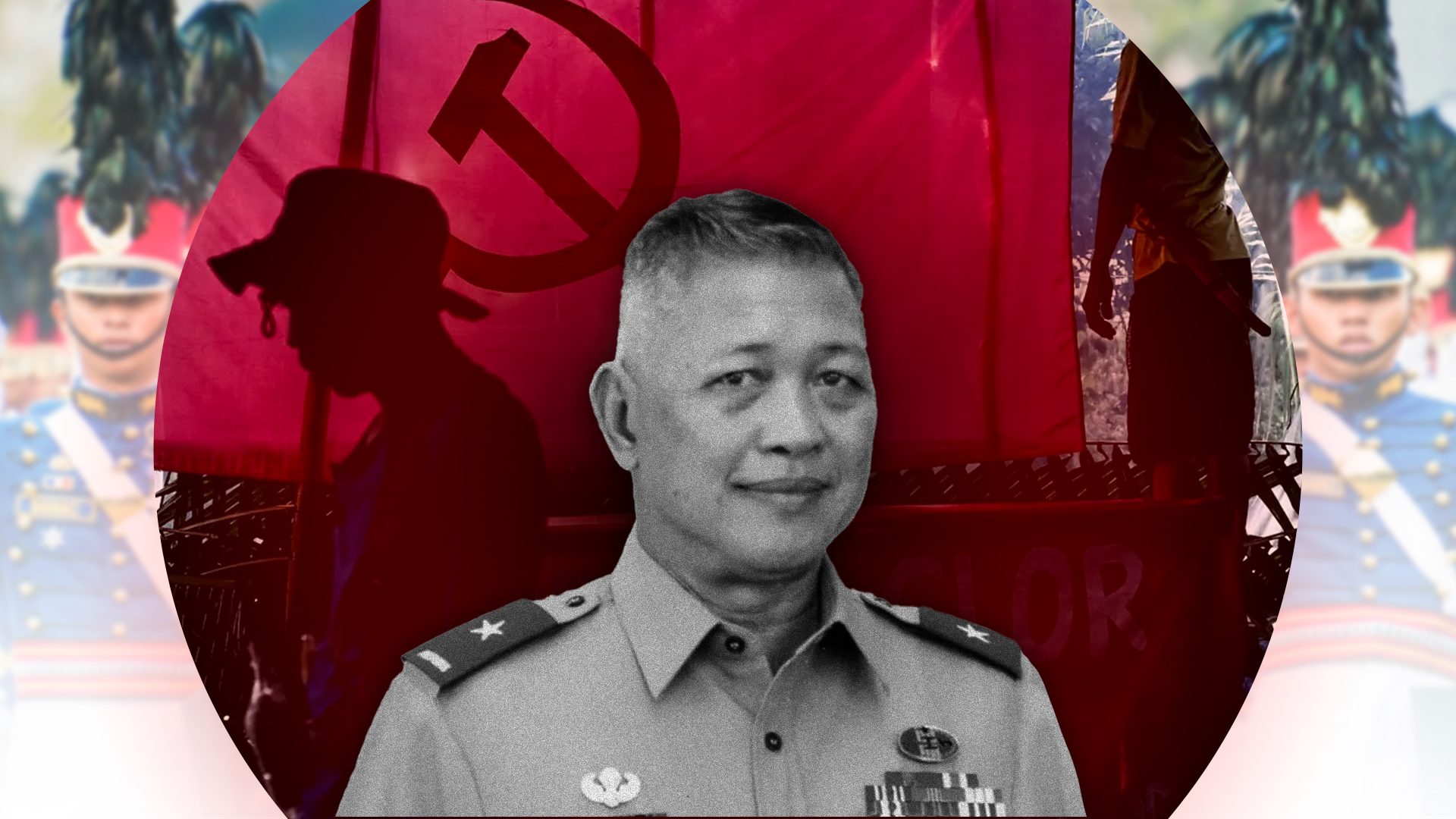
It’s a scene that’s unthinkable today and trumps the imagination. But the unthinkable is what Victor Corpus has done all his life until he breathed his last on Wednesday, April 3, at the age of 79.
Gathered with his fellow cadets at the Philippine Military Academy (PMA) at Fort del Pilar in Baguio City a lifetime ago, Corpus sat down to listen to a congressman who spoke to them about the wisdom of the anti-communist war being waged by the United States at the time in Vietnam. The global cause to fight and defeat communism is a cause that Filipino soldiers must embrace, the lawmaker told the cadets – the same cadets who, prior to this talk, had listened to leftist academics such as then-University of the Philippines professor Jose Maria Sison, about the evils of capitalism and imperialism as embodied by America.
This was the mid-1960s, the height of America’s ferocious war against the Vietnamese, which the Philippines, under then-president Ferdinand E. Marcos, was supporting. Gauging from the questions asked in that meeting, it became apparent to the congressman that some of the country’s future soldiers were opposed to the war, a retired general who was among the cadets in that meeting recalled to Rappler. The intense yet mild-mannered Corpus stood up to ask, “Why are the Americans in Vietnam, anyway?”
That episode cost the career of one of their military professors, Dante Simbulan, a known progressive officer who was instrumental in bringing in leftist intellectuals to PMA classes and who instilled nationalism and critical thinking in the minds of young cadets. It could also have served as a red alert for the military, but the class did eventually graduate in 1967.
After graduation, the radicalized Corpus briefly joined the now-defunct Philippine Constabulary before returning to the PMA as an instructor. Three years later, in 1970, the 26-year-old soldier defected to the communist New People’s Army (NPA) doing the unthinkable: he led communist rebels in a daring December raid of the PMA armory, carting away nearly all the academy’s short and long firearms and leaving a deep scar in the institution that would take decades to heal.
With his airborne and special forces skills, Corpus spent his early years as a guerrilla in training fighters and crafting expansion plans for the rebel army. He eventually helped plot the NPA’s ambitious project to get firepower from China through an arms landing via the deep, treacherous seas of Isabela. In July 1972, thousands of long firearms and ammunition from China were boarded on MV Karagatan, which sailed through rough waters to Palanan, Isabela, where they were to be handed over to NPA rebels. But the military got wind of the plot, deployed hundreds of forces to the area, engaged the rebels in combat, and botched the landing.
The military-ransacked MV Karagatan would later sink in the deep ocean of Isabela, and along with it the NPA’s dream of an instant armory. Marcos would declare Martial Law two months later.
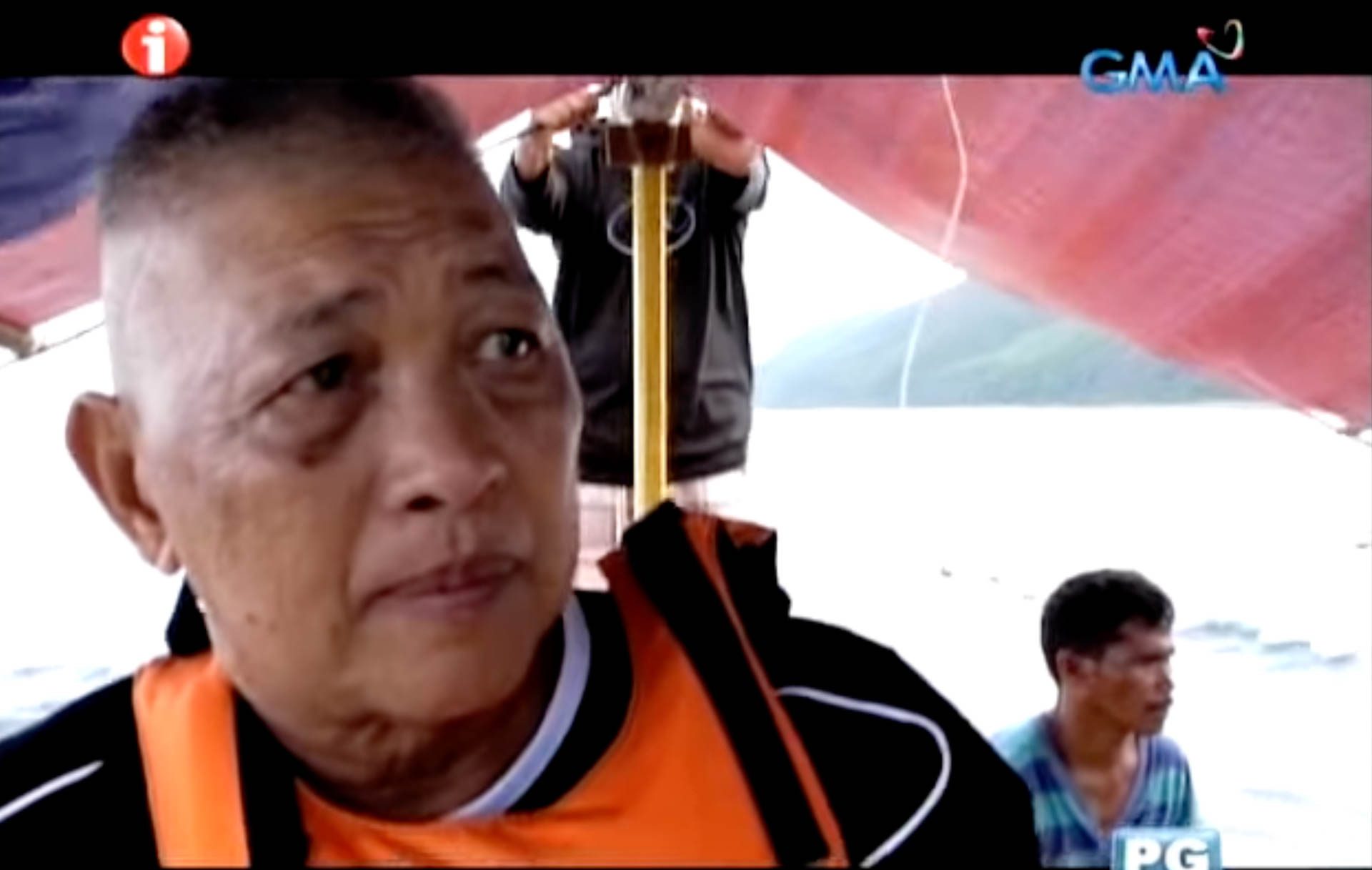
While a fiasco, Karagatan sealed the friendship of Corpus with the young Romulo Kintanar, who would eventually become chief of the NPA. They led the ragtag band of less than a dozen guerrillas who prepared for the arms landing, trekking the Sierra Madre for more than two months to reach the point of the supposed landing. Corpus would often recall to us how he was so impressed by Kintanar’s shooting skills in the protracted hours of combat as they retreated to the wilds of Sierra Madre.
Back to barracks
Corpus stayed with the NPA until 1976, when he decided to surrender out of what he said were his frustrations with the rebel army. The institution he betrayed did not take him back easily; he was imprisoned until the EDSA People Power Revolution in February 1986 that ended the Marcos dictatorship.
He was back with a vengeance. And did the unthinkable, again.
First, the soldier-turned-rebel-turned-soldier accused the Communist Party of the Philippines (CPP-NPA) of being behind the 1971 Plaza Miranda bombing that killed and wounded opponents of the dictator Marcos, an incident that the anti-Marcos movement had blamed on Marcos himself. The CPP-NPA branded this as a figment of Corpus’ imagination, but he would be vindicated years later by CPP leaders who did confirm that it was indeed an NPA special operation.
And then in early 1987, he exposed a supposed plot by soldiers close to then-defense minister Juan Ponce Enrile to mount a coup against then-president Corazon Aquino. They blasted him for spreading lies, but they would in fact be behind at least seven coup attempts against Aquino during her tumultuous six-year term from 1986-1992.
‘Silent War’
When I first met Corpus in 1989, he had just published Silent War, a book that sought to reorient the government’s counter-insurgency campaign away from a militaristic approach to a more holistic strategy that gave equal attention and resources to socio-economic development projects in rebel strongholds. His thesis of winning hearts and minds would provide the blueprint for the “clear-hold-consolidate-develop” counter-insurgency strategy that post-Aquino governments followed, except the regimes of Gloria Macapagal-Arroyo and Rodrigo Duterte, which favored a more militaristic bent.
A technician and engineer at heart, Corpus spent his comeback years in the armed forces tinkering with his mind and hands to come up with how to best defeat state enemies. Long before drones were deployed as weapons, he would regale us with his designs of a remote-controlled small plane that could fly over mountainous areas to conduct surveillance. He labored for hours to study how waste could be turned to better use and how water can be recycled to irrigate lands more scientifically.
A rebel by nature, he railed against corruption that persisted in the armed forces and the government. So that when the hard-partying and womanizing actor Joseph Estrada was elected president in 1998 and was accused of massive corruption, Corpus turned into a rebel again, but this time from within. He was one of the key officers who persuaded the late military chief of staff Angelo Reyes to withdraw support from Estrada, triggering the second EDSA revolt in January 2001. Corpus and Reyes were friends; they both finished their masters at the Harvard Kennedy School of Government in 1990.
That rebellion from within came with a prize: the successor of Estrada, Gloria Macapagal-Arroyo, appointed Corpus chief of the Intelligence Service Armed Forces of the Philippines (ISAFP) – a move that shocked the institution. He might have bitten more than he could chew, as he moved against perceived critics of then-president Arroyo such as former senator Panfilo Lacson, fell for false leads, and essentially politicized the intelligence agency. It didn’t help that his commander-in-chief had grown unpopular through the years and had to coddle the military to stave off destabilization attempts against her.
In chess, in life
One such attempt – the July 2003 Oakwood mutiny led by young officers like Antonio “Sonny” Trillanes IV – demanded Corpus’ resignation. And he did quit.
“In chess, when a queen is beleaguered, it is sometimes necessary to sacrifice a knight to save the game,” Corpus said in his resignation letter a few days after the mutiny. “I feel that the restiveness will not calm down with my continued presence.”
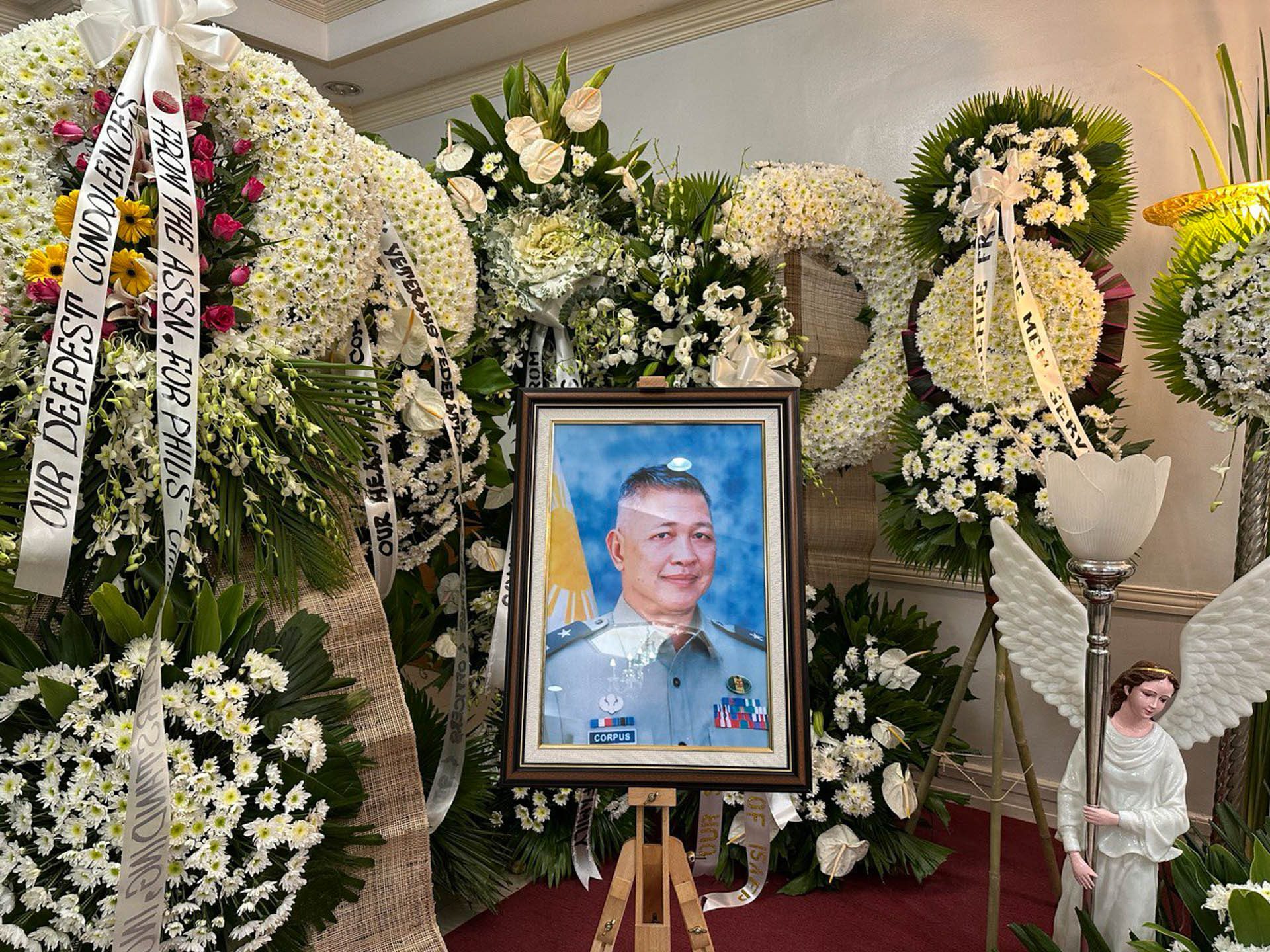
The Arroyo years, after all, were special to him. It was during this time when his retirement age was extended to 60 (instead of the mandatory age of 56), such that he retired only in October 2004.
In retirement, Corpus would mount projects here and there, speak in security forums, bury his head in books and numbers, and lose sleep deciphering solutions to the world’s intractable problems on climate, air, water. This restless mind was blessed with a steady hand who was constantly by his side, his wife Mely, until she died during the pandemic.
Our last moment with them was over lunch of fish and vegetables at their humble apartment in Malate. Corpus lived an unthinkable military life – without the trappings and gloss of his high-living fellow officers. Salute, sir! – Rappler.com
2 comments
How does this make you feel?





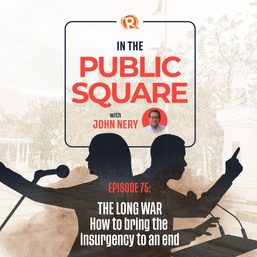

![[OPINION] The CPP-NPA’s 3rd Rectification Movement is bad news to the peace process](https://www.rappler.com/tachyon/2024/01/tl-cpp-npa-peace-talk-rectification.jpg?resize=257%2C257&crop=366px%2C0px%2C1080px%2C1080px)
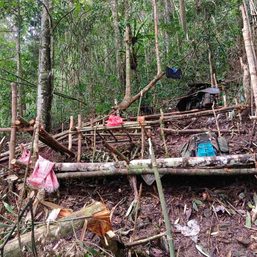

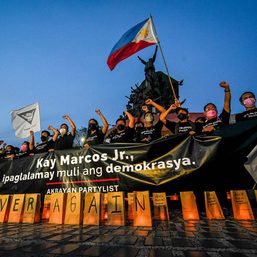
![[Newspoint] The challenge of unsavory company](https://www.rappler.com/tachyon/2024/02/tl-unsavory-company.jpg?resize=257%2C257&crop=238px%2C0px%2C720px%2C720px)

![[Newspoint] A Freedom Week joke](https://www.rappler.com/tachyon/2024/06/20240614-Filipino-Week-joke-1.jpg?resize=257%2C257&crop_strategy=attention)


![[Bodymind] Forgiveness, Enrile, and Bongbong Marcos Jr.](https://www.rappler.com/tachyon/2024/03/forgiveness-enrile-bongbong-march-6-2024.jpg?resize=257%2C257&crop=411px%2C0px%2C1080px%2C1080px)
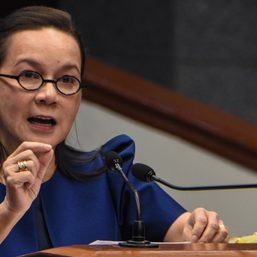
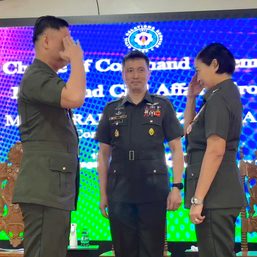
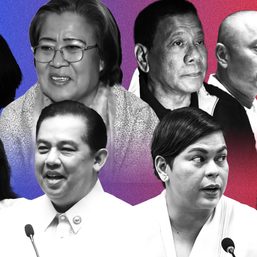
![[OPINION] Spy vs. Spy](https://www.rappler.com/tachyon/2023/08/Spy-vs-Spy.jpg?resize=257%2C257&crop_strategy=attention)

![[PODCAST] KRIMINAL: How government intelligence works](https://www.rappler.com/tachyon/2021/01/kriminal-sq-13.jpg?resize=257%2C257&crop_strategy=attention)

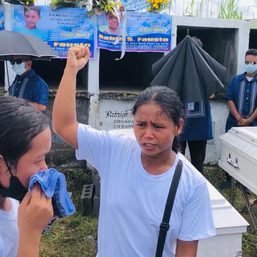





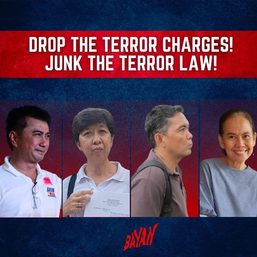



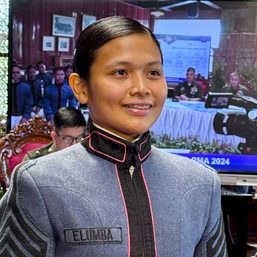
I also salute Victor Corpuz. I believed this is how he lived: well thought out, well fought, well-loved, and in the end, well-lived. He deserves more than a salute. Rest in Peace.
I agree: Victor Corpuz deserves a salute and even more than that. I appreciate how he directed his life: well-thought-out, well-fought, well-loved, and well-lived. Rest in Peace!